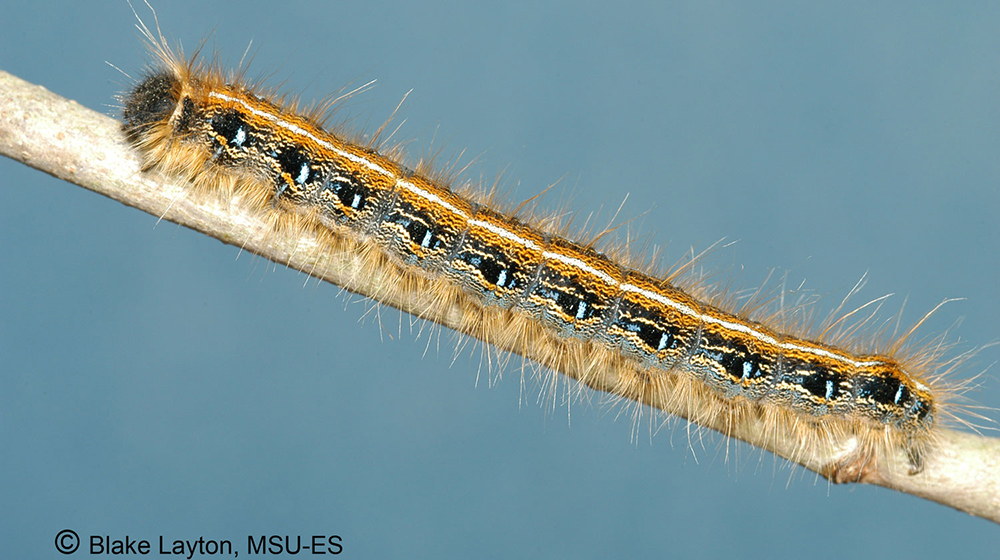Eastern Tent Caterpillar, No 3
Related News
June 24, 2013
June 20, 2013
April 11, 2013
April 2, 2013

Malacosoma americanum
This is the caterpillar that builds those white silken tents in the crotches of black cherry trees every spring. Black cherry is the most common host, but they also occur in fruit trees and ornamental trees such as Bradford pear. Tents are usually built in limb crotches, where there are no leaves to feed on. The caterpillars spend most of their time inside the tents where they are more protected from predators, but they must leave the tent two or three times per day, usually at night, to feed. For a brief period in the spring, mature caterpillars can be seen wandering around on the ground in search of a place to spin their cocoon. The white cocoons may be found attached to tree trunks, sides of buildings, and similar sites. There is only one generation per year. The night-flying moths emerge from the cocoons to mate and lay their eggs on the twigs of suitable hosts, and these eggs do not hatch until the following spring.
Control: Control is rarely necessary on large black cherry trees. To control outbreaks on fruit trees or small ornamental trees, remove tents by hand and/or spray leaves with a product containing the active ingredient spinosad using an appropriate power sprayer or a hose-end tree and shrub sprayer (Fertilome, Bonide, Monterey and Greenlight companies all sell spinosad products). Avoid pasturing pregnant mares near wild cherry trees during the spring. Mares that inadvertently ingest eastern tent caterpillars while grazing may abort foals. This phenomena, known as “Mare Reproductive Loss Syndrome” caused hundreds of millions of dollars in losses in the Kentucky race horse breeding industry in 2001.
See Insect Pests of Ornamental Plants in the Home Landscape, page 18 for more information on eastern tent caterpillars.
Blake Layton, Extension Entomology Specialist, Mississippi State University Extension Service.
The information given here is for educational purposes only. Always read and follow current label directions. Specific commercial products are mentioned as examples only and reference to specific products or trade names is made with the understanding that no discrimination is intended to other products that may also be suitable and appropriately labeled.